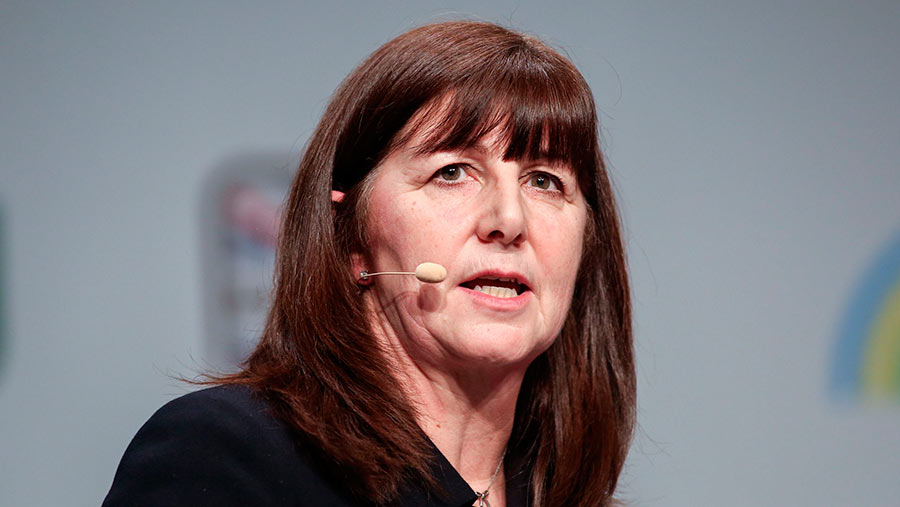Welsh farmers may get more time for BPS phase-out
 Lesley Griffiths © Ian Hinchliffe/REX/Shutterstock
Lesley Griffiths © Ian Hinchliffe/REX/Shutterstock Welsh farmers are likely to be given more time to get used to life without direct payments than the five years suggested in the “Brexit and our land” consultation, still being conducted in Wales.
According to the document, the Basic Payment Scheme (BPS) is due to be phased out between 2020 and 2025.
But talking to Farmers Weekly this week, Welsh rural affairs secretary Lesley Griffiths said she was willing to be flexible on this, especially in light of the fact that Defra was now proposing a seven-year transition.
See also: ‘Brexit and our land’ assessed
Her views had also been shaped by a trip to New Zealand in April this year. “They obviously had that cliff edge in 1984, and the one thing I learned there is that you have to have this transition period.
“We have said we will have the BPS in 2018 and 2019, and are consulting for 2020 to 2024, but I am very flexible about it and, depending on what comes in from the consultation, I am starting to think that that might be too quick. We are certainly happy to look at extending that transition period.”
‘Blunt tool’
But Ms Griffiths was adamant that the BPS would be phased out eventually, describing it as “too blunt a tool to allow farmers to prepare effectively for Brexit”.
Instead, she has proposed two new schemes – an Economic Resilience scheme and a Public Goods scheme – “targeted at those active farmers who do the work”.
“The proposed Economic Resilience scheme is going to target funding towards improving businesses, including food production,” said Ms Griffiths.
“But we know that food production is not going to be enough to keep some of our farming businesses going, so we will have the Public Goods scheme as well.
“So many of our farmers are already producing public goods, so that will be a completely new income stream for them to support their businesses and encourage diversification.”
FUW ‘spat’
Ms Griffiths also defended her decision to get involved in a spat with the Farmers Union of Wales last month, after it produced postcards for members to return to the Welsh government, rejecting the removal of direct payments.
“My main concern was that they were doing their members a disservice, because they were just saying ‘tell the Welsh government that you reject everything’.
“That was not really responding to the consultation, and their members then would miss an opportunity to have their say around the first agricultural policy for 40 years. I did not want those members to just send those postcards in without offering any alternative.”
Disadvantage
Ms Griffiths denied Welsh farmers would be at a disadvantage to their continental counterparts following the removal of direct payments, pointing out that the CAP was going to change, too.
It was unclear what level of funding would be available to the CAP in future, just as it was unclear what level of funding would be available to Wales after 2022.
“We need to be prepared, and I believe the two schemes we are proposing are the best to support our farmers, raise their productivity and prepare them for Brexit and beyond.”
Response to ‘Brexit and our land’
So far the Welsh government has received about 5,000 responses to its consultation, while about 1,000 people have attended nine open meetings. The farming sector had been just as vocal as environmental lobbyists, said Ms Griffith.
With two weeks to run, she is hoping for 7,000 responses overall. “If you look on a population balance, we have had proportionately more responses than Defra had already. I want to beat Defra. It’s important we get as many responses as possible, as it sends a very positive message.”
